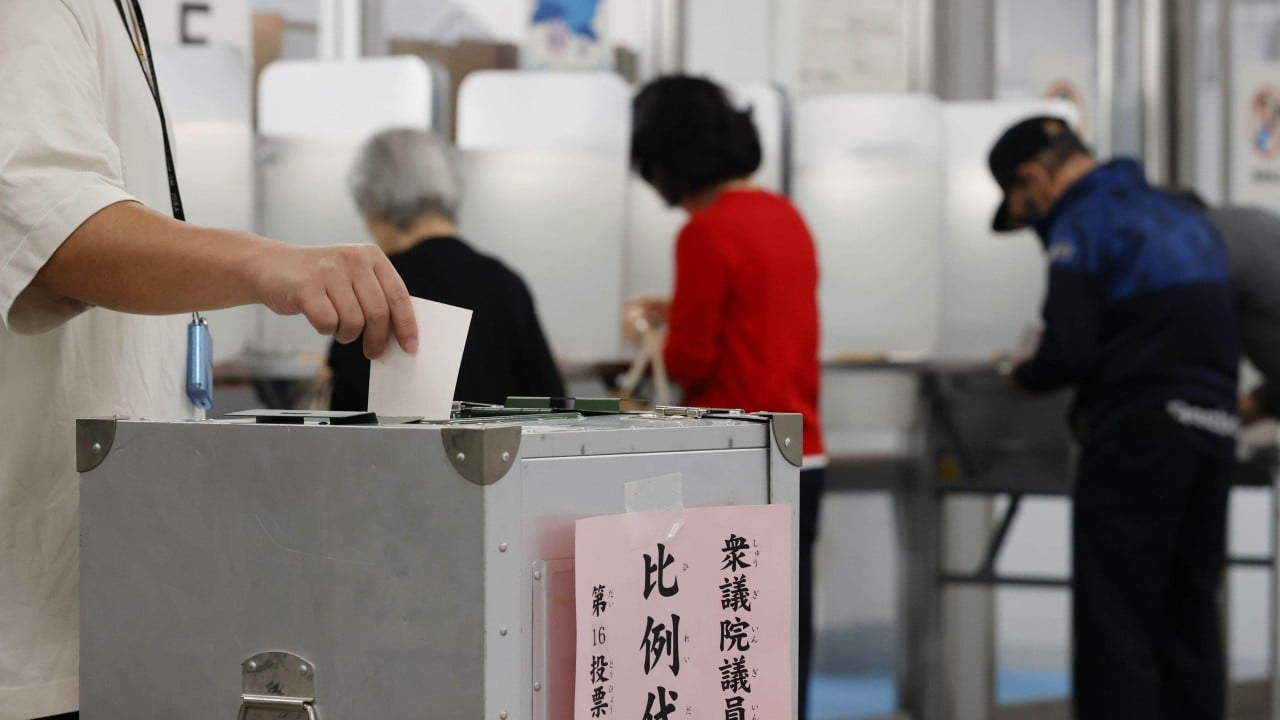Published: 11:25am, 27 Oct 2024Updated: 2:42pm, 27 Oct 2024
Voters in Japan headed to the polls on Sunday for parliamentary elections that will determine the next prime minister and which are expected to lead to a power-sharing agreement that may turn the focus to domestic issues.
Advertisement
But such an arrangement is unlikely to alter Tokyo’s outlook on defence and security, observers said, adding that power-sharing would not be a new strategy for the ruling party.
Polling suggests the ruling conservative Liberal Democratic Party (LDP) – which has dominated Japanese politics for decades – and its long-time partner Komeito will suffer a drubbing from voters, with the coalition possibly losing its parliamentary majority, as Japan struggles with rising costs of living and increasingly tense relations with neighbouring China.
Losing the majority in the lower house would force Prime Minister Shigeru Ishiba, in office just a month, into power-sharing negotiations with smaller parties, bringing uncertainty in some policy areas, although no polls forecast the LDP being ejected from power.
Political wrangling could roil markets and be a headache for the Bank of Japan, if Ishiba chooses a partner that favours maintaining near-zero interest rates when the central bank wants to gradually raise them.
Advertisement
“He’ll be considerably weakened as a leader, his party will be weakened in the policies that it particularly wants to focus on, because bringing in a coalition partner will cause them to have to make certain compromises with that party, whatever party it may be,” said Jeffrey Hall, an expert on Japanese politics at the Kanda University of International Studies

